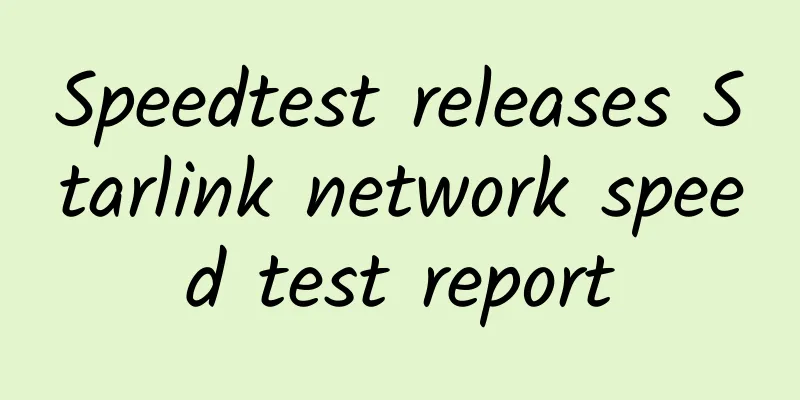Speedtest releases Starlink network speed test report

|
Ookla, the parent company of the well-known speed test software Speedtest, recently released a Starlink speed test report. The report shows that the Internet download and upload speeds provided by Starlink are sometimes faster or slower than the median of the same level of broadband. Except for one area, Starlink's latency is higher than broadband. Starlink began providing test services to users in October last year. The Speedtest results disclosed by Starlink to the FCC are encouraging: Starlink achieved a download rate of 102 to 103 Mbps, an upload rate of 40 to 42 Mbps, and a latency of 18 to 19 ms, which is comparable to terrestrial Internet services. According to Ookla's report, Starlink's median download speeds in the United States range from 40.36 Mbps to 93.09 Mbps. Ookla said: "Network latency has consistently observed Starlink median latency values from 31 milliseconds (Kittitas County, Washington) to 88 milliseconds (Otsego County, Michigan). In the same area, this is 486% higher than traditional broadband. |
>>: Bryan to launch fiber optic internet service
Recommend
ServerHub: $79/month-dual E5-2650v2/128GB/1TB SSD/unlimited 1Gbps/Los Angeles & Seattle data centers
ServerHub is a long-established foreign hosting c...
Understanding the 5G industry chain in one article
Hello everyone, I am Xiaozaojun. Today I would li...
BuyVM adds new unlocked streaming VPS hosts, 1Gbps unlimited traffic from $5/month
BuyVM has launched the China Special - STREAM RYZ...
Even monkeys can penetrate the intranet!
Hello, everyone, I am amazing. I recently turned ...
Stay at home during the Labor Day holiday to watch TV series and play games. Learn how to set up WiFi network and say goodbye to lag
Although the current prevention and control level...
5G "new infrastructure", new scenarios, new models
Since the beginning of the year, the central gove...
HTTPS 7-way handshake and 9 times delay
HTTP (Hypertext Transfer Protocol) has become the...
80% of the country's fiber optic access 100M broadband can't open web pages
According to data released by the Ministry of Ind...
How will the cancellation of data "roaming" fees, which has aroused nationwide praise, trigger a "butterfly effect"?
At the first session of the 13th National People&...
Research shows: 80% of enterprises will strengthen 5G and edge plans
Edge and 5G have become leading areas of investme...
How to effectively manage network communication data? Egress traffic monitoring can reduce the burden on the network
Informatization has gradually penetrated into all...
Wangsu Technology launches one-stop edge intelligence solution to lower AIGC application threshold
The new generation of intelligent technologies re...
Overview of Honeynet Technology Based on SDN
The development of cloud computing and virtualiza...
Let’s talk about 6G communication technology again
2020 is coming to an end. With the advancement of...
HTTP Cache Protocol Practice
1. What is Cache? Cache, also known as Cache, is ...









